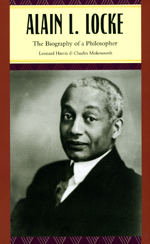Rehabilitating intellectualism

For the past eight years the term “intellectual” has been frequently interpreted by the media as a piece of anti-populist or elitist rhetoric. But in a recent article for the New Republic Ross Posnock notes that Obama’s presidency has rehabilitated the term as one of praise rather than opprobrium, and with it interest in the history of black intellectualism in America. Tapping into this renewed interest, Posnock cites Leonard Harris and Charles Molesworth’s new book, Alain L. Locke: The Biography of a Philosopher for its revealing look at the life and thought of its highly influential, yet often neglected subject.
Inheriting the role of the leading spokesperson for black intellectualism from such figures as Booker T. Washington and W.E.B. Du Boise, the authors show how Alain L. Locke both continued their legacy of leadership but also vitally updated the role. Posnock writes: Harris and Molesworth’s book “brings alive [Locke’s] distinctive fashioning of the role of black intellectual” demonstrating his unique ability to operate as “a race man,” but also as “an apolitical aesthete,” keeping “up the pressure on both roles, as his thought continually refined itself and deepened.” Thus, expanding the influence of black intellectuals in American culture Harris and Molesworth deliver fascinating evidence of Locke’s profound impact as the “father of the Harlem Renaissance,” promoting and sparring with such diverse figures as Langston Hughes, Zora Neale Hurston, Jacob Lawrence, Richmond Barthé, William Grant Still, Booker T. Washington, W. E. B. Du Bois, Ralph Bunche, and John Dewey among others.
To find out more about Locke’s unique and important contributions to American culture read Posnock’s article at the New Republic website, then pick up a copy of Leonard Harris and Charles Molesworth’s, Alain L. Locke: The Biography of a Philosopher.